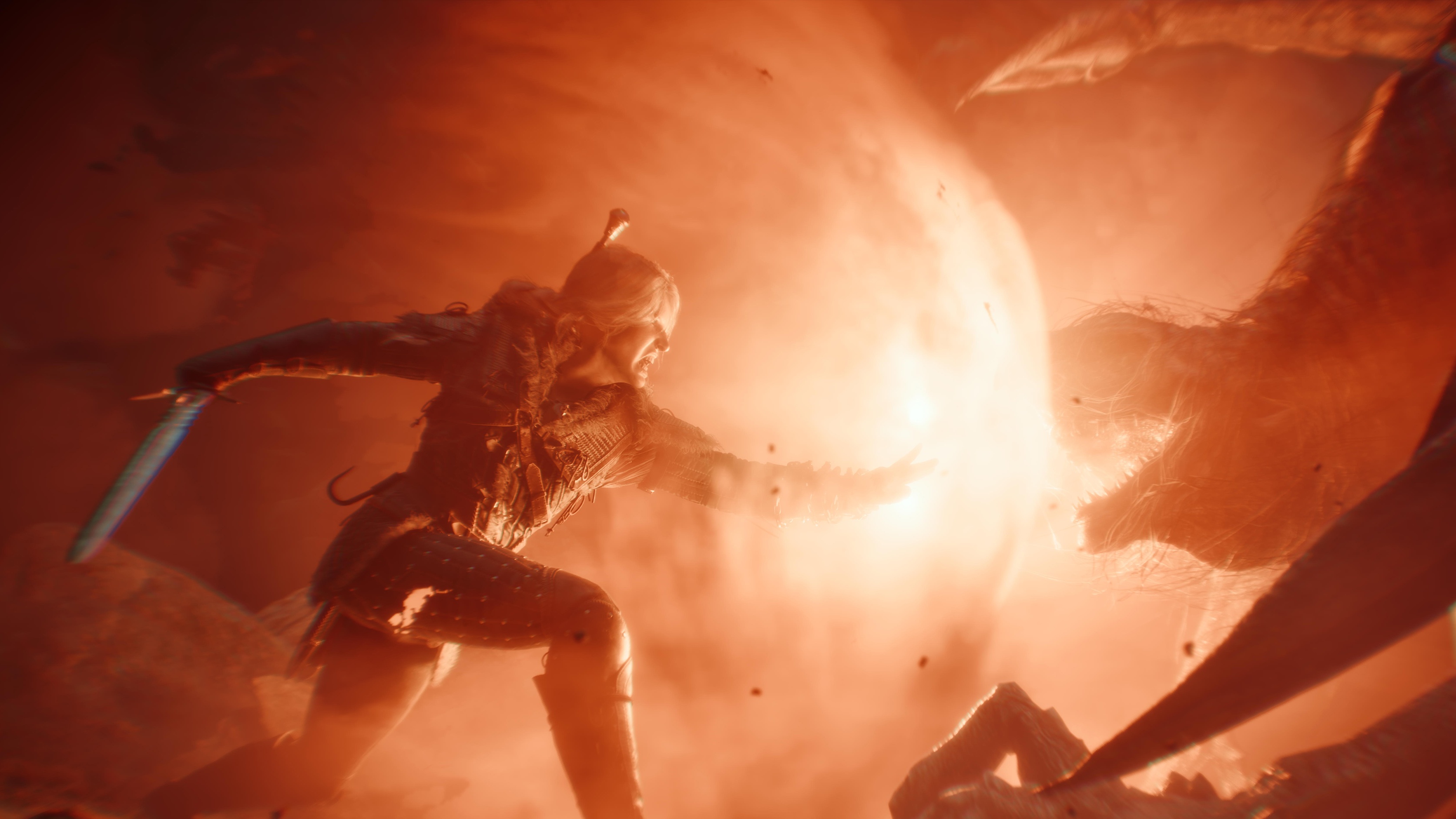The Witcher 4 may have familiar faces but it's an origin story: 'A new opening, a new saga, a new beginning actually'
"Ciri is so passionate about what she's doing that she will never be neutral. She will go for it."

CD Projekt has officially revealed The Witcher 4, the newest entry in its epic fantasy RPG series, and the first cinematic trailer shows new protagonist Ciri intervening as a village maiden is sent off to sacrifice. Geralt's adopted daughter and a familiar face to fans of the series, Ciri was at the heart of this game even back when CDPR "were doing Wild Hunt" and, per game director Sebastian Kalemba, "it just felt natural to us and we believe that Ciri deserves it."
PCG's Evan Lahti sat down with Kalemba and executive producer Gosia Mitręga after the reveal, and Ciri herself was one of the big topics: And particularly the fact that, given her relative youth, she's a whole new window into the Witcher-verse.
"I think it's important to remember that although I personally love Ciri, and there are millions of players and fans that love her too, that it's also not only about sentiment for the old players, but we want to go through to the wider audience," says Mitręga. "There are many people that were so young back when The Witcher 3 was released so it will be a new experience for them entirely."
Ciri has that firm through-line from The Witcher 3, her first appearance in the series, but is enough of an unknown quantity that CDPR thinks she's also a fresh start.
"This is just a character we want to put in and give an origin story in a world that some part of the world knows," says Mitręga, "but this is a new opening, a new saga, a new beginning actually: With that huge respect for players with the [sentimental attachment]."
The idea of this being an "origin story" does feel a tiny bit odd though, if only because we know a good amount about Ciri already, and she was playable in The Witcher 3: Wild Hunt. But the trailer does seem to hint at her inexperience at times, even through a literal stumble, and there's a distinct coming-of-age vibe to proceedings already, even a hint of something like Batman Begins.
"Definitely," says Kalemba. "I think you have pretty good intuition when it comes to, you know, the character needs to form in a way, right? So that's a natural I would say for young characters that are struggling, though I also wouldn't compare it to simply Batman or Spider-Man.
The biggest gaming news, reviews and hardware deals
Keep up to date with the most important stories and the best deals, as picked by the PC Gamer team.
"There are some things in common when it comes to fantasies, but to take one thing... Geralt was so much defined already that he had his own code that he developed over years. So he knew what to choose between A, B, and C, he was really defined, grounded. Ciri, she is more on her way, defining the way she deals with the struggles around the problems, the quests, and I think that gives us a great opportunity, and also for players to be able to define her on that journey."
"To define the way, the Witcher she will be," adds Mitręga. "The kind of Witcher she will be during the adventure and the story, right?
Kalemba says this isn't about Ciri being a total cipher, but tailoring the game's choices and journey around the "super strong" core elements of her character. "Ciri is so passionate about what she's doing that she will never be neutral. She will go for it. And then like in the trailer, she also got a tough lesson in this case: She wasn't able to save the character. She got a lesson, she did her best, she tried to prove them wrong, but ultimately she failed because she couldn't save her.
"So she cannot have control of everything, but definitely she brought the change. But she's definitely more like a blank page, she's organic, she's all about learning right now, and becoming the Witcher her way."
Reaction thus far to Ciri seems entirely positive, and after all we've had three games' worth of Geralt's gruff tones. There's no-one better-suited to take the series forward than the White Wolf's next of kin but, if you're one of those sentimental types, don't feel too down: "definitely he's going to appear."

Rich is a games journalist with 15 years' experience, beginning his career on Edge magazine before working for a wide range of outlets, including Ars Technica, Eurogamer, GamesRadar+, Gamespot, the Guardian, IGN, the New Statesman, Polygon, and Vice. He was the editor of Kotaku UK, the UK arm of Kotaku, for three years before joining PC Gamer. He is the author of a Brief History of Video Games, a full history of the medium, which the Midwest Book Review described as "[a] must-read for serious minded game historians and curious video game connoisseurs alike."
- Evan LahtiStrategic Director

